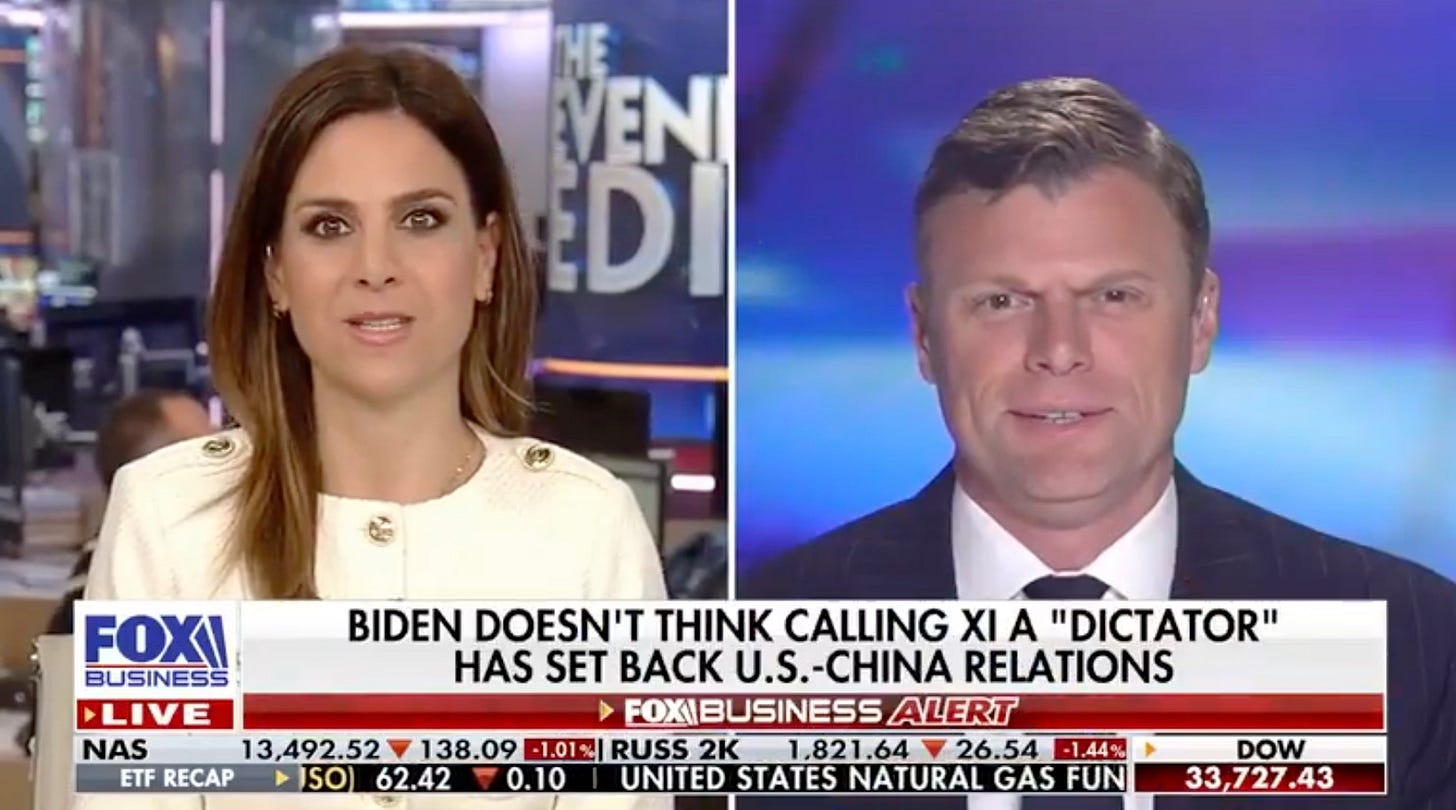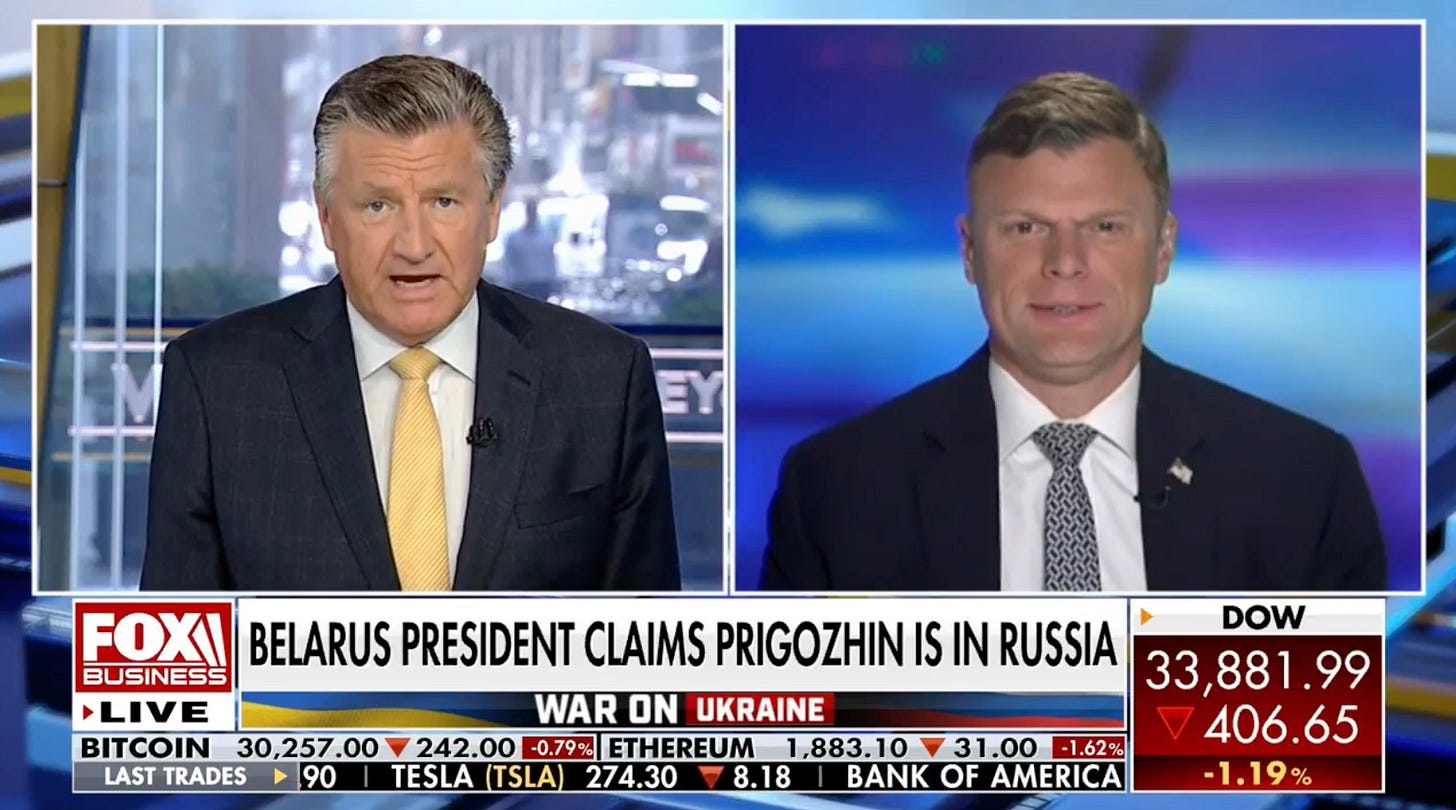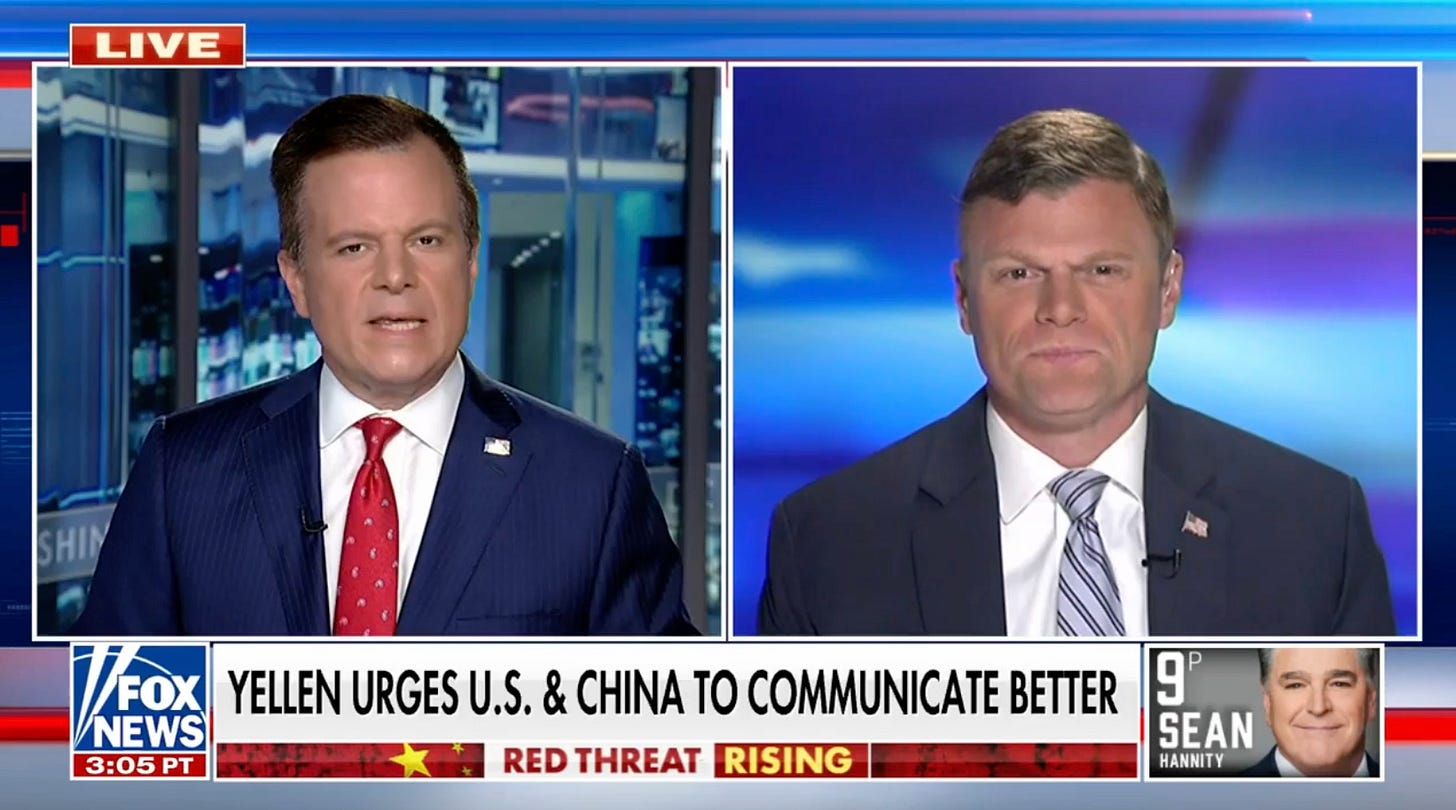Chicoms Control Your Health
The failure factory in Washington cares more about Ukraine and pork handouts than drugs vital for Americans’ health

Writing in the Washington Times, a colleague and I argue that with a few exceptions, Congress and the administration are ignoring our critical vulnerability to China for the supply of pharmaceuticals and their ingredients. The DC failure factory has thrown more than $100 billion to lose in South Vietnam Libya Iraq Afghanistan Syria Ukraine and is racking up $1.5 trillion annual deficits indefinitely, but neglecting the basics of our security. Will Congress or one of the presidential candidates act?
Congress ignoring America’s dependence on China for drugs
By Christian Whiton and Elisha Maldonado - - Friday, July 14, 2023
Referencing electric vehicles and vowing to bring the “full battery supply chain home,” President Biden last week advocated economic policies like a pork-laden $280 billion law subsidizing semiconductor manufacturing and other industries.
He also took the time to lament: “We know for too long China is dominating the production of raw materials needed for critical products.”
But the administration and much of the rest of official Washington have let that situation persist while remaining indifferent to our nation’s dependence on our chief adversary in the world for important medicines — as well as their most important components, known as active pharmaceutical ingredients, or APIs, the part of a drug that actually treats illness.
More than three years after the COVID-19 pandemic emerged from China, sparking shortages in items as simple but important as surgical masks and hand sanitizer, voters might think their government had taken steps to ensure we had no dependence on Beijing for public or personal health.
But they would be wrong.
As the pandemic began, The New York Times reported that “Chinese pharmaceutical companies have supplied more than 90% of U.S. antibiotics, vitamin C, ibuprofen and hydrocortisone as well as 70 percent of acetaminophen and 40 to 45 percent of heparin in recent years.”
Pro-China groups dispute this dependence, often by misleadingly counting the dollar value of drugs rather than the actual doses or medical necessity. Many of the imports are off their exclusive patents, usually meaning they are cheaper but no less important.
The situation with APIs is even more concerning. Drugs manufactured domestically or imported from places such as Europe, India or Japan often still depend on Chinese APIs.
During last winter’s shortage of amoxicillin — the primary antibiotic used to treat children’s ear infections — U.S. Pharmacopeia noted that 83% of the critically needed raw ingredients that go into making pharmaceutical drugs come from abroad.
The problem can be traced to globalist naivete and Chinese industrial policy, as Nikkei Asia reported last year about how China gained such a strong position:
“For Western pharmaceutical companies that used to produce their own APIs, sourcing from China and India made sense. … The emerging countries could make the ingredients for less, under looser environmental standards.”
In other words, as in so many fields, to save a few bucks or because of excessive regulation, U.S. manufacturing moved overseas.
Would Beijing use its drug-production power to harm or influence the U.S. and our allies in a conflict? For anyone who has dealt with the Chinese Communist Party, the answer can only be yes.
Even in peacetime, China aggressively uses its economic power for coercion. For example, it just leveraged its dominant market position in the production of gallium and germanium, which are important to the semiconductor, telecommunications, and electric vehicle fields.
Beginning Aug. 1, Chinese companies will need licenses to export these materials, which presumably will be harder to come by when Washington displeases Beijing. In the past, China has used its economic might to punish Australia, Japan, South Korea and Taiwan for actions it didn’t like.
Beijing’s conduct in a military crisis would be even more aggressive. Furthermore, given geographic realities of the Western Pacific, even a somewhat contained conflict over Taiwan would disrupt most shipping and air freight between East Asia and North America.
As Nikkei Asia reported: “When it comes to API prices, China has a significant edge. According to KPMG India’s research, a drug generally can be produced for 20 percent less in China than in India. This is largely thanks to cheaper raw materials, which can be up to two-thirds of the total production cost.”
The cost to make the goods in America would likely be higher still — but worth the price to ensure security.
A solution may be restoring a program that once created a thriving pharmaceutical manufacturing business in the U.S. commonwealth of Puerto Rico before it was repealed by then-President Bill Clinton in the heyday of globalist optimism.
In 1996, Mr. Clinton signed a phase-out of Section 936 of the tax code, causing the elimination by 2006 of a tax exemption for the pharmaceutical companies in Puerto Rico that the federal government granted in 1976. Subsequently, the island’s economy has grown for only three of the past 17 years, the government went bankrupt, and 12% of its population moved away in the 2010s.
Repeal of Section 936 was not the only reason America became dependent on China for drugs and APIs, nor was it the sole cause of Puerto Rico’s stagnation, which was abetted by corruption and natural disasters. Nevertheless, restoring the tax break, whether limited to Puerto Rico as a way to help the industry and the island, or extended nationally, should be on Congress’ agenda this year.
Given the importance and urgency of the situation, Congress should also consider generous subsidies for domestic production and the methodical phase-in of high tariffs on Chinese production to free us from dependence on China.
Rep. Mike Gallagher, Wisconsin Republican, introduced legislation in two previous Congresses to begin to address the problem. Hopefully, more of his colleagues will join him in seeking to blunt this threat before Beijing predictably uses it against us.
Christian Whiton was a State Department senior adviser during the George W. Bush and Trump administrations. Elisha Maldonado is a senior fellow at the Independent Women’s Forum.








Honestly we’re being governed by idiots and have been for decades
Previous giants like Eastman, Dow, Dupont say they are mired in stringent EPA demands on plants that cause cost 100X those of India and 1000X of China. The Puerto Rico operations also had exemptions beyond simple tax advantages. But the island is enmeshed in corruption much like Mexico.
As you note priority is an issue. The "moon-shot" might be zones in places like WV or WY where waivers are plentiful for certain plants. I still think it possible to build factories largely automated if the capital was there but those investments have not been made.